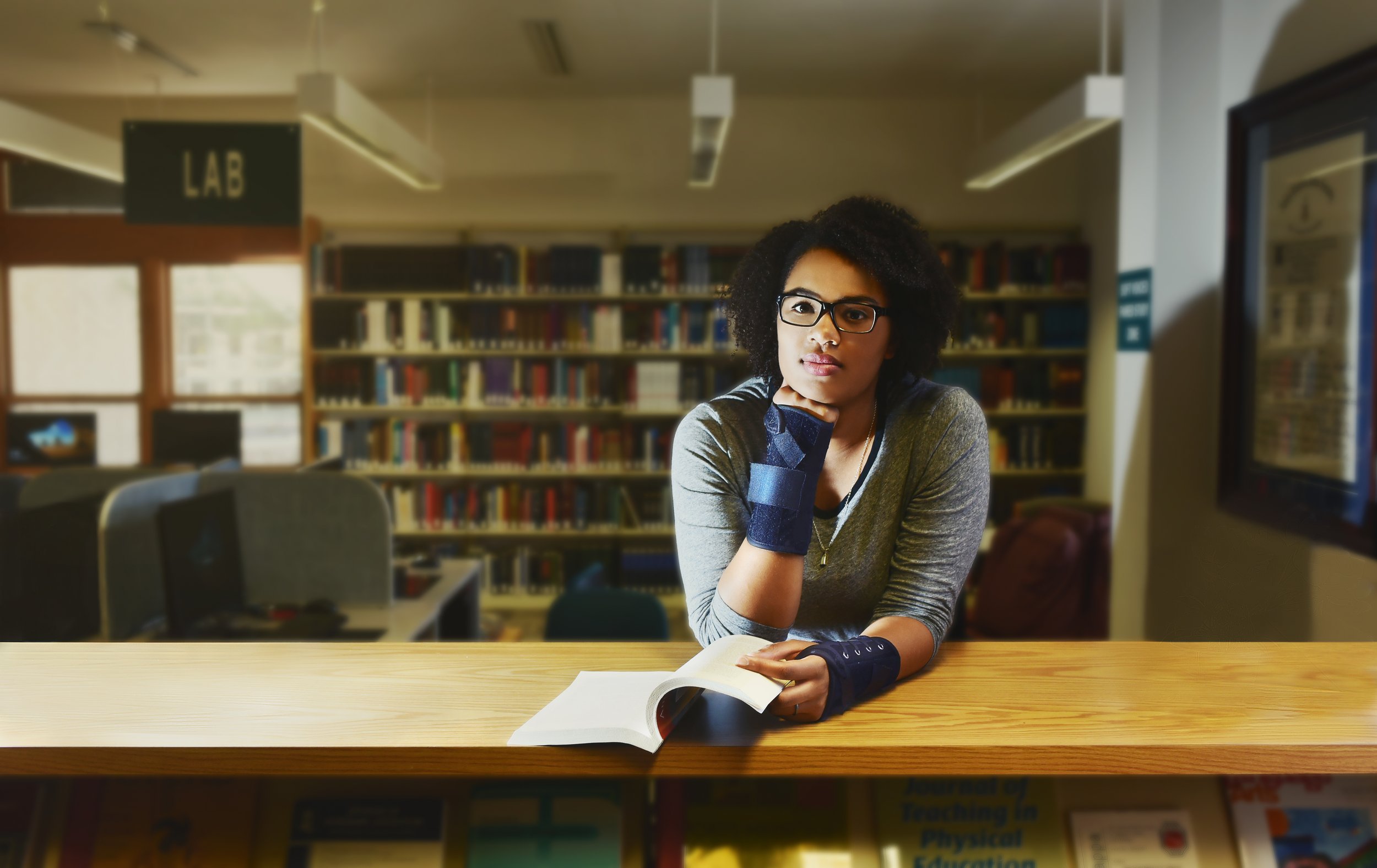
“I used to be worried about wearing my braces and showing people that I have a disability, but now I don’t care what people think.”
Image 1 (above): A young Bahamian-American woman with short black hair leans against a bookshelf inside a college library. She wears black-rimmed glasses, a gray three-quarter-sleeve shirt, and blue wrist braces on both arms. One hand rests beneath her chin while the other flips through a book, situating her quietly within the academic space.
Image 2: The same woman stands between two library shelves, reaching upward to place a book on the highest shelf. She wears a burgundy cardigan and blue jeans. Wrist braces support both arms, and a knee brace is visible as she stretches toward the book.
Growing up in the Bahamas, Alyssa was teased for being light-skinned. When she later moved to the United States, she found that the same trait was suddenly viewed as desirable. At a young age, she became aware of how dramatically beauty standards can change depending on culture. Living with an underlying disability only complicated how she understood her body within those shifting expectations.
While in college, Alyssa was diagnosed with Ehlers-Danlos Syndrome, a hereditary connective tissue disorder that affects the joints and organs. Everyday activities often caused her pain, and she struggled to keep pace with what was considered “normal” college life. Jokes about her having the body of someone much older reflected a deeper disconnect between how she felt and how others perceived her.
Contemporary media overwhelmingly promotes images of bodies that are fit, healthy, and endlessly capable. Disabled and chronically ill bodies are rarely represented as complex, attractive, or whole. When they are visible, they are often reduced to spectacle or explanation. Alyssa regularly encounters stares or questions when she wears braces to support her joints, but she chooses to use those moments to educate rather than retreat.
Alyssa’s story challenges narrow ideas of beauty and ability, revealing how bodies that fall outside the ideal are not broken, but excluded.
Alyssa, 20 - Missouri
Share Alyssa’s Story
#SeeBodiesDifferently #MidwestBrokenMirror
Resources
Reducing the stress of serious illness, rare disease, and disability through emotional support and educational resources rooted in mindfulness, awareness, and compassion.
One out of every five Americans lives with a disability. The Dreamscape Foundation is actively working to ensure that anyone who lives with this struggle is provided with the tools and resources needed to meet their educational, employment, and independent living goals.
The Ehlers-Danlos Society is a global community of individuals, caregivers, healthcare professionals, and supporters, dedicated to saving and improving the lives of those affected by the Ehlers-Danlos syndromes (EDS), hypermobility spectrum disorders (HSD), and related conditions.




